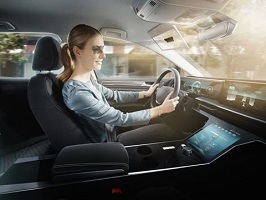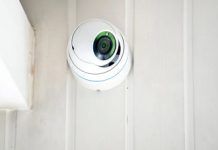For Bosch the focus is on safe and robust AI for the manufacture of smart products, which the company will be showcasing at this year’s CES. One of these products is the Virtual Visor: an AI-based digital vehicle sun visor that made its debut at the world’s largest trade fair for consumer electronics. The product has also won a CES Innovation Award, as has Bosch’s 3D display for the car.
Other Bosch AI highlights at the show include an application for predictive maintenance of the International Space Station, a system for monitoring vehicle interiors, and a smart platform for medical diagnostics.
“The solutions we’re showcasing at CES make it clear that Bosch aims to become an innovation leader in AI as well,” says Bosch management board member Michael Bolle. “As of 2025, every Bosch product will either contain artificial intelligence or will have been developed or manufactured with the help of AI.”
The global market volume for AI applications is expected to be around 120 billion dollars over that same period, a twelve-fold increase compared to 2018 according to research company, Tractica. Bolle explains that Bosch wants to tap into that potential. “The company already invests 3.7 billion euros each year in software development, currently employs more than 30,000 software engineers, and has 1,000 associates working on AI.”
In addition, Bosch has established a comprehensive training programme. “We plan to make nearly 20,000 associates AI-savvy over the next two years,” Bolle explains. “We must invest not only in artificial intelligence, but in human intelligence as well.” The programme includes training formats at three different levels for managers, engineers, and AI developers and includes guidelines for using AI responsibly.








